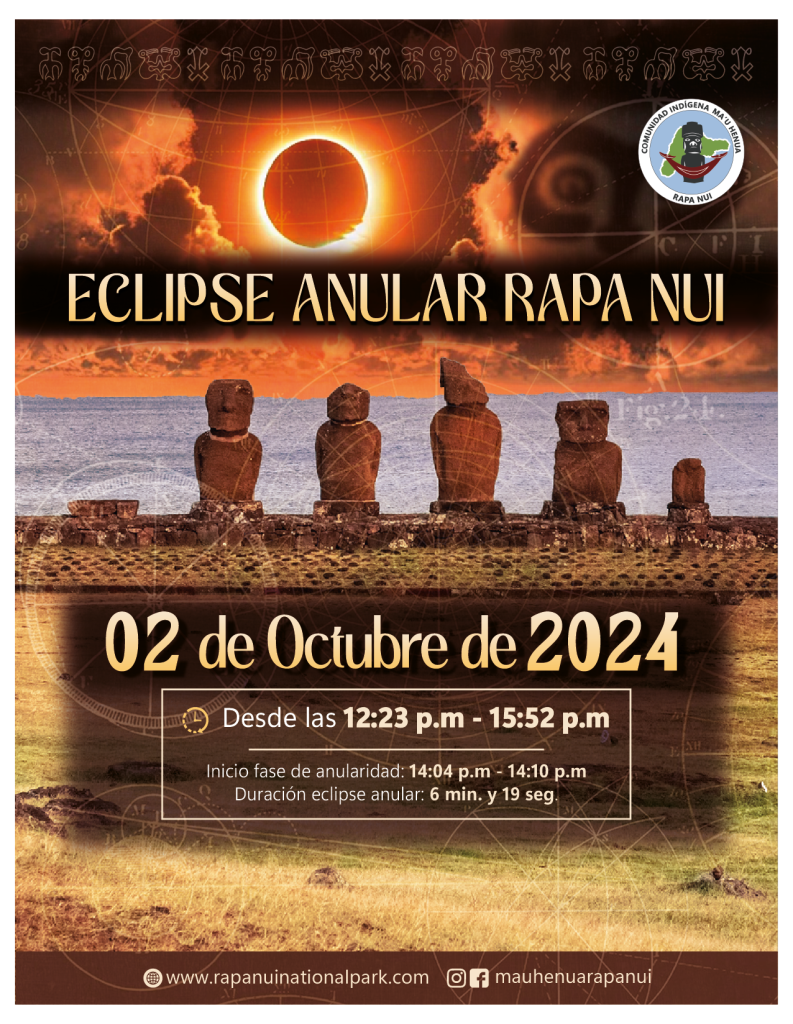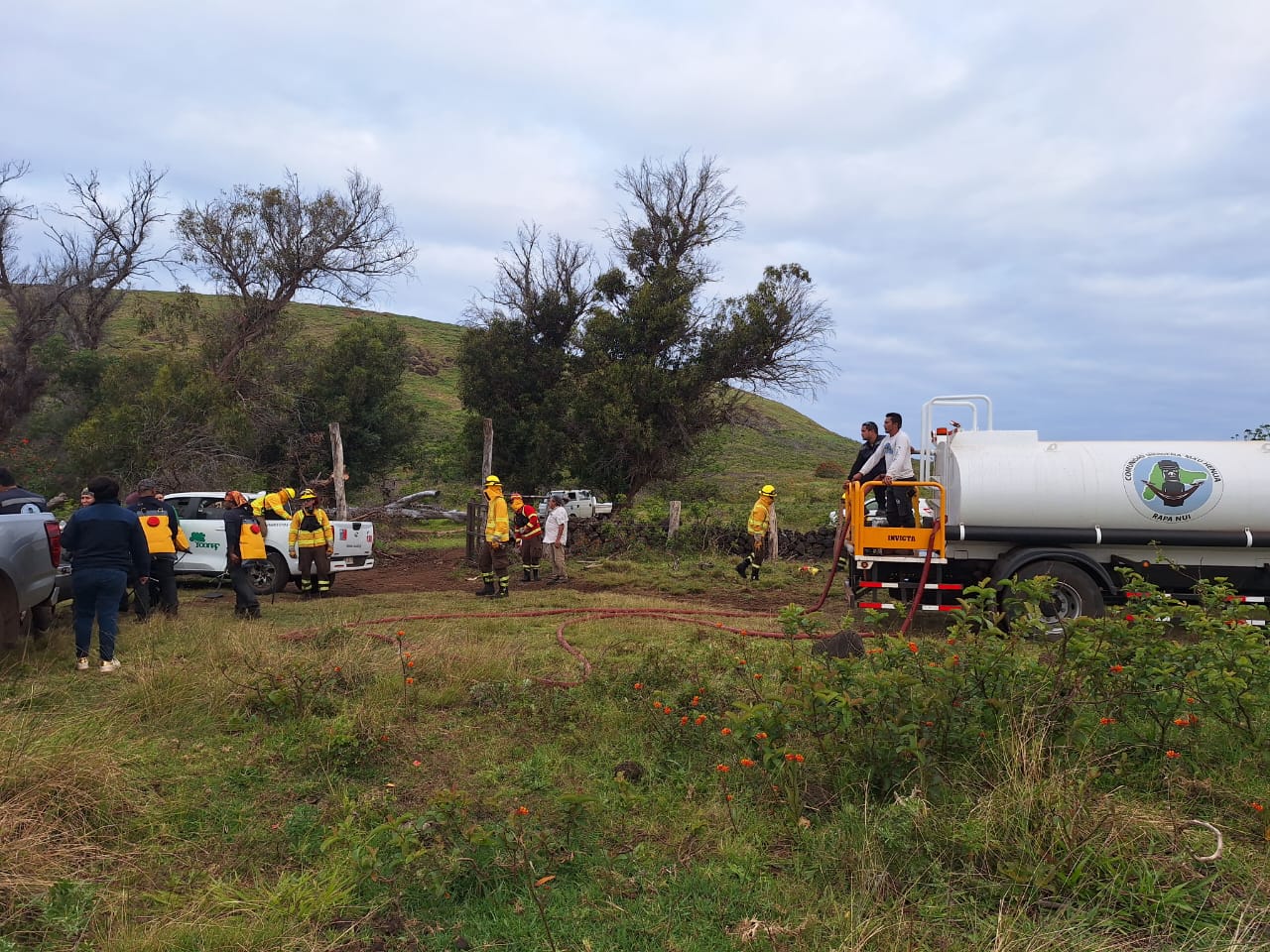Annular Eclipse in Rapa Nui: A Unique Astronomical Phenomenon on October 2nd
Rapa Nui, September 13, 2024 – Rapa Nui is preparing to witness an exceptional astronomical spectacle on October 2: an annular solar eclipse. This phenomenon, known as the “ring of fire,” occurs when the moon moves in front of the sun, covering its center and leaving a visible ring of light around it. Unlike a […]
Rapa Nui, September 13, 2024 – Rapa Nui is preparing to witness an exceptional astronomical spectacle on October 2: an annular solar eclipse. This phenomenon, known as the “ring of fire,” occurs when the moon moves in front of the sun, covering its center and leaving a visible ring of light around it. Unlike a total eclipse, where the sun is completely obscured, an annular eclipse allows observers to see this stunning ring of fire in the sky.
What makes this event even more remarkable is its rarity. It is unusual for a solar eclipse to occur twice in the same location in such a short period. Surprisingly, this will be the second eclipse in Rapa Nui in just 14 years. On July 11, 2010, the island experienced a total solar eclipse that darkened its skies for a few brief but impactful minutes. Now, in 2024, the island is once again the stage for a major astronomical event, positioning itself as one of the best places in the world to witness it.
What is an Annular Eclipse?
An annular solar eclipse occurs when the moon is farther from the Earth in its elliptical orbit, making its apparent size in the sky smaller than the sun. This prevents it from covering the sun entirely, leaving a bright ring or “ring of fire” visible. This phenomenon is not only a visual treat but also a significant event for the scientific community, as it provides an opportunity to study the sun’s atmosphere, particularly its corona.
The Rarity of Eclipses in the Same Location
Solar eclipses—whether total, partial, or annular—are relatively rare events, and their repetition in the same geographic location is even less common. According to NASA (National Aeronautics and Space Administration), a total solar eclipse may occur in the same place once every 375 years on average. The fact that Rapa Nui will witness two solar eclipses in just 14 years, a total eclipse in 2010 and now an annular eclipse in 2024, underscores the uniqueness of this phenomenon.
Safety Recommendations for Enjoying the Eclipse
To safely enjoy this event in Rapa Nui, it is essential to follow certain precautions. Direct exposure to sunlight without proper protection can cause severe eye damage, including retinal burns and permanent vision loss.
- Use special glasses: Make sure they are eclipse-viewing glasses certified to ISO 12312-2 standards to filter harmful solar radiation.
- Avoid using homemade filters or regular sunglasses: These do not provide adequate protection for the eyes.
- Supervise children: Accompany them during the observation to ensure they follow safety measures.

